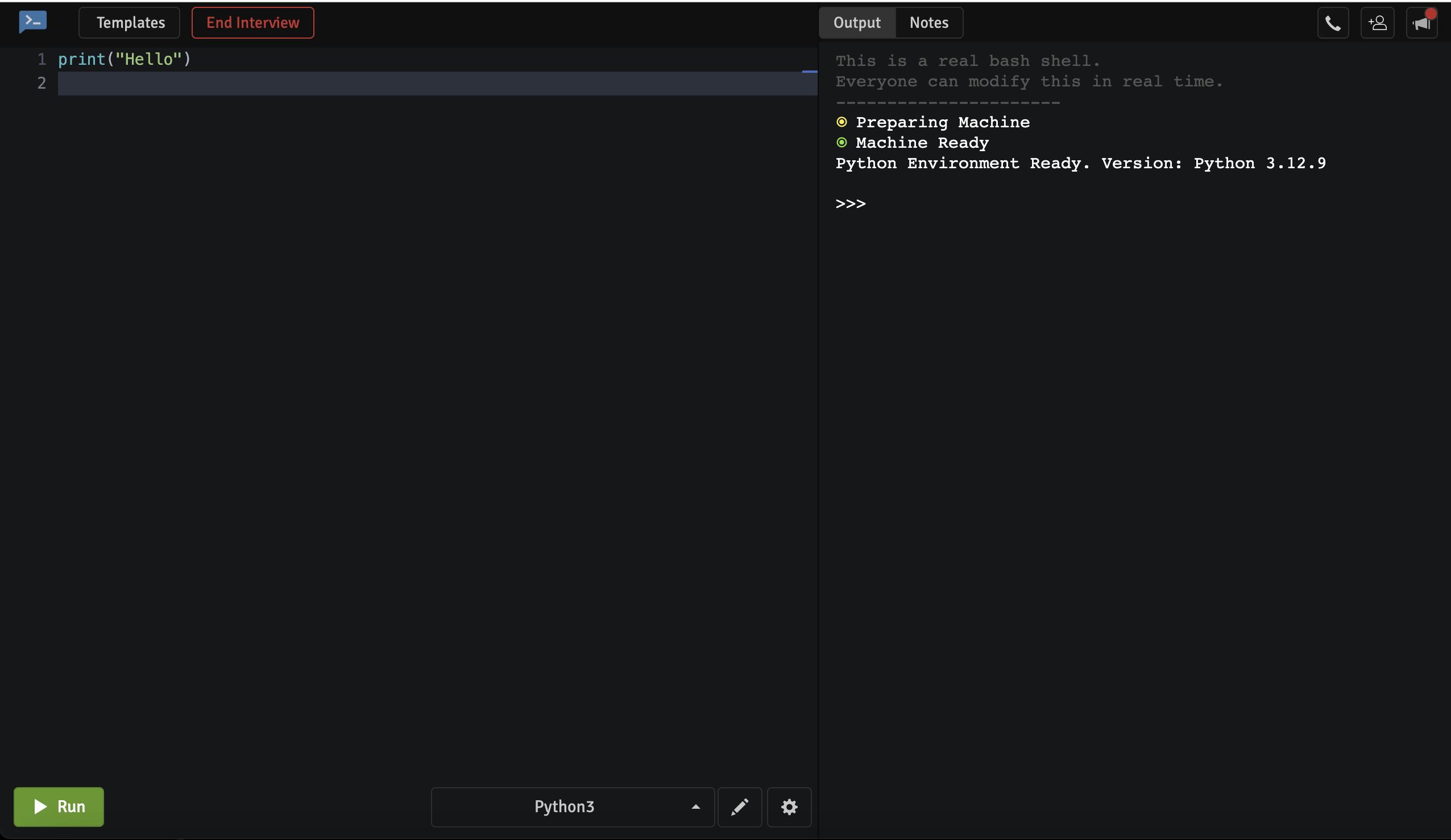At CodeInterview, we continuously strive to enhance the coding interview experience for both candidates and interviewers. To keep up with modern testing standards, we have upgraded from Nose to Pytest, ensuring a smoother and more efficient interview process on our online coding interview platform.
Whether you’re conducting a technical interview assessment or building testable code snippets, this upgrade equips you with a powerful and widely adopted testing framework. With Pytest now fully supported in our online coding editor for interviews, you can seamlessly write, run, and debug test cases by making your testing workflow faster and more intuitive.

Why Switch from Nose to Pytest?
When it comes to Python testing frameworks, Pytest stands out for its simplicity, flexibility, and powerful capabilities.
What Makes Pytest the Preferred Choice?
Pytest enables you to write simple yet scalable test cases effortlessly. With its modern, flexible, and actively maintained architecture, Pytest has become the go-to choice for developers. It offers:
- A clean and easy-to-read syntax
- Support for complex functional testing
- Widespread adoption in major Python projects like Django, FastAPI, and even Python itself
What Happened to Nose?
Previously, Nose was a widely used testing framework for Python. However, since its development ceased years ago, it is no longer maintained or updated. This has led to compatibility issues and limited support for modern testing practices.
As a result, Pytest has become the preferred testing framework, offering a more robust and scalable solution. Its minimalistic syntax and powerful features make it ideal for everything from small scripts to large-scale applications. Unlike Nose, Pytest eliminates unnecessary subclassing and boilerplate code, allowing developers to write and execute tests more efficiently. This makes it an excellent choice for remote technical interview tools, online coding assessments, and automated testing in coding interview platforms.
Key Benefits of Pytest for Online Coding Interviews and Assessments:
1. Fixtures: Modular & Reusable Testing
One of Pytest’s most powerful features is its fixture model, which allows you to set up and tear down test environments in a modular and reusable way. This makes it an excellent choice for:
- Technical interview assessments
- Automated coding test setups
- Efficient debugging during live coding interviews
- Remote technical interview tools
With fixtures, you can configure resources, provide test data, and establish conditions before running tests—helping you streamline your testing workflow effortlessly.
2. Parameterisation: Run Tests with Multiple Inputs
In a coding interview platform, testing the same function with different inputs is often necessary. Instead of writing repetitive test cases, Pytest’s parameterized tests allow you to run a test function multiple times with different data sets—without duplicating code. This approach:
- Enhances test coverage
- Reduces redundancy
- Improves efficiency in online coding editors for interviews
3. Seamless Compatibility: No Need to Rewrite Tests
Transitioning to Pytest is incredibly easy because it is fully compatible with UnitTest and Nose test suites. This means you can integrate Pytest into your existing setup without having to rewrite your test cases from scratch.
- Works effortlessly in an online coding editor for interviews
- Fits smoothly into any technical interview assessment workflow
- Supports legacy test suites with minimal changes
4. Minimal Boilerplate Code: Faster Debugging & Better Readability
Pytest allows you to write concise and expressive test cases, making your code more readable and maintainable—which is especially important during coding interviews.
With its intuitive assertion statements, Pytest makes debugging faster and more efficient, ensuring a seamless experience for both interviewers and candidates.
Let’s Get Started with Pytest on CodeInterview
Here is a demo Pytest template to help you get started with Pytest within your Single File Python 3 interview in Codeinterview:
# all_in_one.py
import pytest
import sys
# Your application code
def add(a, b):
return a + b
def multiply(a, b):
return a * b
# Your test cases
class TestMathFunctions:
def test_add(self):
assert add(2, 3) == 5
assert add(-1, 1) == 0
def test_multiply(self):
assert multiply(2, 3) == 6
assert multiply(0, 5) == 0
# More test functions
def test_standalone_function():
assert add(10, 20) == 30
# Test runner section
if __name__ == "__main__":
# This runs the tests in the current file
exit_code = pytest.main(["-v", __file__])
sys.exit(exit_code)
Since testing is a crucial part of writing reliable and maintainable code, even during technical interviews, by upgrading to Pytest, CodeInterview ensures you have a modern, smooth, and efficient testing experience when working with Python.
Ready to try it out? Head over to CodeInterview, import Pytest within your Single File Interview, and start writing better tests today!
